-
 Bitcoin
Bitcoin $81,725.8617
6.04% -
 Ethereum
Ethereum $1,595.4823
7.95% -
 Tether USDt
Tether USDt $0.9993
-0.02% -
 XRP
XRP $1.9994
9.53% -
 BNB
BNB $577.1239
3.55% -
 USDC
USDC $0.9999
-0.01% -
 Solana
Solana $114.0227
6.99% -
 Dogecoin
Dogecoin $0.1557
6.44% -
 TRON
TRON $0.2411
4.90% -
 Cardano
Cardano $0.6213
9.35% -
 UNUS SED LEO
UNUS SED LEO $9.4123
2.93% -
 Chainlink
Chainlink $12.3356
8.60% -
 Avalanche
Avalanche $17.9497
9.52% -
 Toncoin
Toncoin $2.9914
-1.61% -
 Stellar
Stellar $0.2336
6.25% -
 Hedera
Hedera $0.1694
12.26% -
 Shiba Inu
Shiba Inu $0.0...01198
9.35% -
 Sui
Sui $2.1355
9.15% -
 MANTRA
MANTRA $6.7139
7.48% -
 Bitcoin Cash
Bitcoin Cash $293.9383
8.01% -
 Litecoin
Litecoin $73.7326
3.70% -
 Polkadot
Polkadot $3.5045
1.98% -
 Dai
Dai $0.9999
-0.01% -
 Bitget Token
Bitget Token $4.2721
4.17% -
 Ethena USDe
Ethena USDe $0.9987
0.00% -
 Hyperliquid
Hyperliquid $14.0933
12.91% -
 Pi
Pi $0.5941
5.51% -
 Monero
Monero $204.5106
5.17% -
 Uniswap
Uniswap $5.1756
7.13% -
 OKB
OKB $53.3130
3.39%
What is Altcoin in the crypto community?
Altcoins, diverse cryptocurrencies beyond Bitcoin, offer unique technologies and functionalities but come with high investment risks requiring thorough research and caution.
Apr 03, 2025 at 07:22 pm
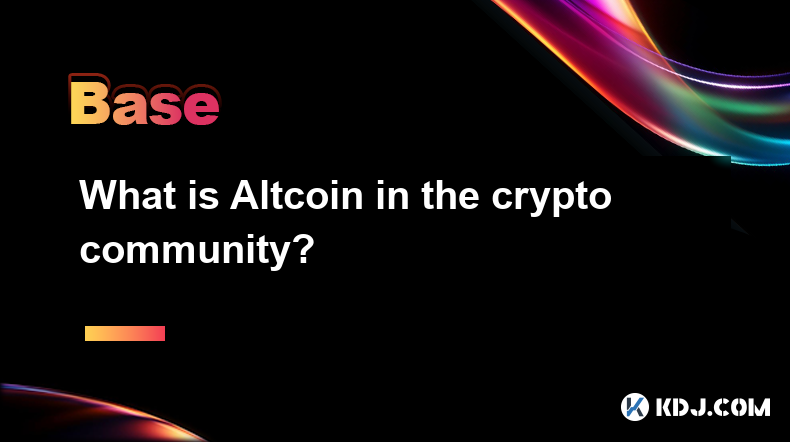
Understanding Altcoins: Beyond Bitcoin
The term "altcoin" is short for "alternative coin," referring to any cryptocurrency that isn't Bitcoin (BTC). Since Bitcoin pioneered the decentralized digital currency concept, numerous others have emerged, each with its own unique features, technology, and goals. The altcoin market is incredibly diverse, encompassing thousands of projects with varying levels of maturity, adoption, and market capitalization. Understanding this diversity is key to navigating the altcoin landscape.
The Diverse World of Altcoins: Technology and Functionality
Altcoins employ a wide range of technologies and aim to solve different problems. Some, like Litecoin (LTC), focus on improving transaction speed and scalability compared to Bitcoin. Others, like Ethereum (ETH), provide platforms for decentralized applications (dApps) and smart contracts, opening doors to a vast array of functionalities beyond simple currency transfers. Still others prioritize privacy, anonymity, or specific niche applications. This technological diversity is a core feature of the altcoin ecosystem.
Why Do Altcoins Exist? Addressing Bitcoin's Limitations
Bitcoin's success highlighted the potential of decentralized digital currencies, but it also revealed limitations. Its relatively slow transaction speeds and high fees, especially during periods of high network activity, spurred the creation of altcoins seeking to address these shortcomings. Furthermore, the limited scripting capabilities of Bitcoin inspired the development of platforms like Ethereum, offering far greater programmability and flexibility. Altcoins, therefore, often represent attempts to improve upon or expand beyond Bitcoin's core functionality.
Investing in Altcoins: Risks and Rewards
Investing in altcoins can be significantly more risky than investing in Bitcoin. The altcoin market is highly volatile, with prices subject to dramatic swings driven by speculation, technological advancements, regulatory changes, and market sentiment. Many altcoins lack the established track record and widespread adoption of Bitcoin, increasing the likelihood of project failure or significant price drops. Due diligence is paramount before investing in any altcoin. Thoroughly research the project's whitepaper, team, technology, and market position.
Classifying Altcoins: A Diverse Landscape
Altcoins can be categorized in various ways. One common approach is based on their underlying technology. For example, some altcoins use Proof-of-Work (PoW), similar to Bitcoin, while others employ Proof-of-Stake (PoS) or other consensus mechanisms. Another classification method focuses on their intended use case. Some altcoins function primarily as payment systems, others as platforms for decentralized finance (DeFi) applications, and still others as governance tokens for decentralized autonomous organizations (DAOs). Understanding these classifications can help investors make more informed decisions.
Navigating the Altcoin Market: Practical Steps
Investing in altcoins requires a cautious and informed approach. Here are some steps to consider:
- Diversify your portfolio: Don't put all your eggs in one basket. Spread your investments across multiple altcoins to mitigate risk.
- Only invest what you can afford to lose: The altcoin market is highly volatile, and losses are a possibility.
- Conduct thorough research: Understand the project's technology, team, and market potential before investing.
- Stay updated on market trends: The cryptocurrency market is constantly evolving. Stay informed about news and developments.
- Use secure storage: Protect your altcoins with a reputable hardware or software wallet.
Understanding the Risks Associated with Altcoins
The decentralized nature of cryptocurrencies, while offering benefits like censorship resistance, also introduces significant risks. Security breaches can result in the loss of funds. Scams and fraudulent projects are prevalent in the altcoin space, requiring vigilance and careful due diligence. Regulatory uncertainty can lead to price volatility and legal challenges. Furthermore, the technical complexity of some altcoins can make them difficult to understand and manage.
The Future of Altcoins: Innovation and Evolution
The altcoin landscape is constantly evolving. New projects emerge regularly, promising innovative solutions and improved functionalities. Some altcoins gain traction and achieve significant market capitalization, while others fade into obscurity. The future of altcoins is likely to be shaped by technological advancements, regulatory developments, and the adoption of cryptocurrencies by mainstream users and institutions. The ongoing evolution of blockchain technology and the exploration of new use cases will continue to drive innovation within the altcoin ecosystem.
Frequently Asked Questions
Q: What is the difference between Bitcoin and altcoins?
A: Bitcoin is the original cryptocurrency, while altcoins are any other cryptocurrency. Altcoins often aim to improve upon Bitcoin's features or offer alternative functionalities.
Q: Are altcoins a good investment?
A: Altcoins can be a good investment, but they are also highly risky. Thorough research and risk management are crucial. Investing only what you can afford to lose is essential.
Q: How can I safely store my altcoins?
A: Use a reputable hardware wallet or a secure software wallet. Avoid storing your altcoins on exchanges unless you are actively trading.
Q: What are some popular altcoins?
A: Some popular altcoins include Ethereum (ETH), Litecoin (LTC), Ripple (XRP), Binance Coin (BNB), and Solana (SOL). However, the popularity of altcoins can change rapidly.
Q: What are the risks of investing in altcoins?
A: Risks include price volatility, project failure, scams, security breaches, and regulatory uncertainty. It's crucial to understand these risks before investing.
Q: How do I research altcoins before investing?
A: Examine the project's whitepaper, team, technology, market capitalization, and community engagement. Look for independent reviews and analyses.
Q: What is the best way to diversify my altcoin portfolio?
A: Diversification depends on your risk tolerance and investment goals. Consider investing in altcoins across different sectors and technologies, avoiding over-concentration in any single project.
Q: Are all altcoins created equal?
A: Absolutely not. Altcoins vary greatly in their technology, purpose, team, and overall viability. Some are well-developed and promising, while others are essentially scams. Careful research is paramount.
Disclaimer:info@kdj.com
The information provided is not trading advice. kdj.com does not assume any responsibility for any investments made based on the information provided in this article. Cryptocurrencies are highly volatile and it is highly recommended that you invest with caution after thorough research!
If you believe that the content used on this website infringes your copyright, please contact us immediately (info@kdj.com) and we will delete it promptly.
- Bitcoin (BTC 0.67%) is inherently an outsider's challenge to the traditional financial system
- 2025-04-10 18:35:14
- Auradine Launches Teraflux AH3880 Bitcoin Mining Rig Amidst U.S.-China Trade Tensions
- 2025-04-10 18:35:14
- CDARI Partners with SFT Protocol to Bring Blockchain to E-commerce
- 2025-04-10 18:30:13
- After a Dramatic Shake-up, Realms of Alurya (RoA) Is Officially Parting Ways with Treasure and Migrating to the Ronin Network
- 2025-04-10 18:30:13
- Magic Eden Acquires Slingshot, the Decentralised Trading App, to Expand Its Footprint Beyond NFTs
- 2025-04-10 18:25:13
- Bitcoin surged above $84,000 after Donald Trump flipped the global tariff plans over his head
- 2025-04-10 18:25:13
Related knowledge
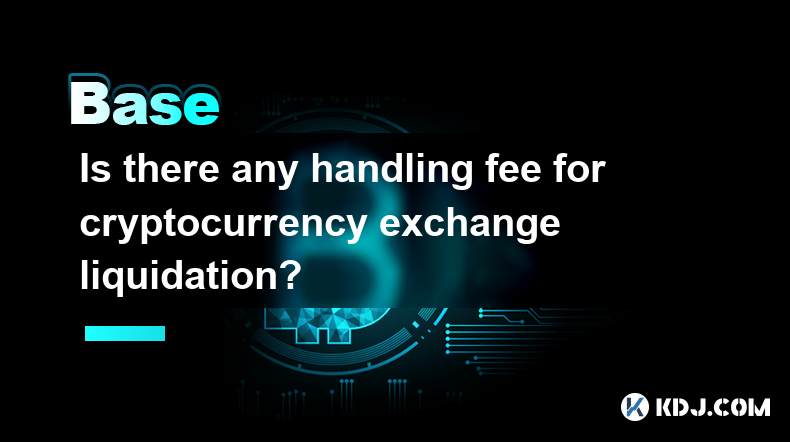
Is there any handling fee for cryptocurrency exchange liquidation?
Apr 10,2025 at 04:29pm
When trading contracts on cryptocurrency exchanges, liquidation is a word that scares investors. A liquidation means that the investor has lost all its principal. So, will the exchange still charge a handling fee when the liquidation is liquidated? This is a concern for many investors. This article will give a detailed answer to this. Important statemen...
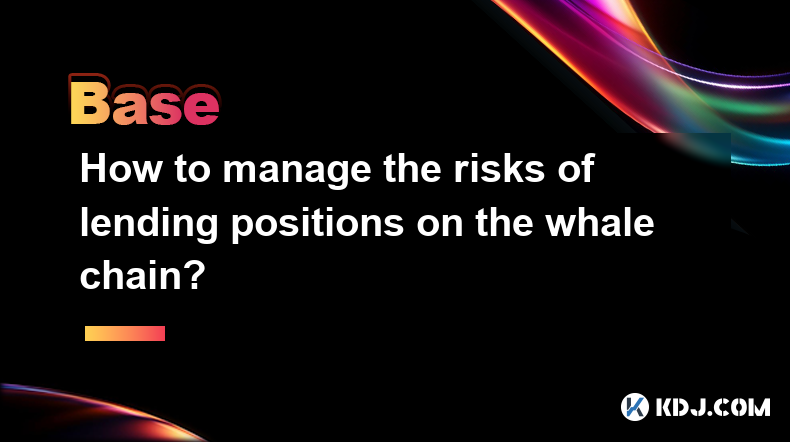
How to manage the risks of lending positions on the whale chain?
Apr 09,2025 at 10:50pm
To manage the risks of lending positions on the whale chain, we need to start from the following aspects: 1. Reasonable control of positions and leverage:Determine the appropriate lending scale and leverage multiple based on your own risk tolerance to avoid excessive leverage. For example, if whales do not have a particularly strong grasp of the market ...
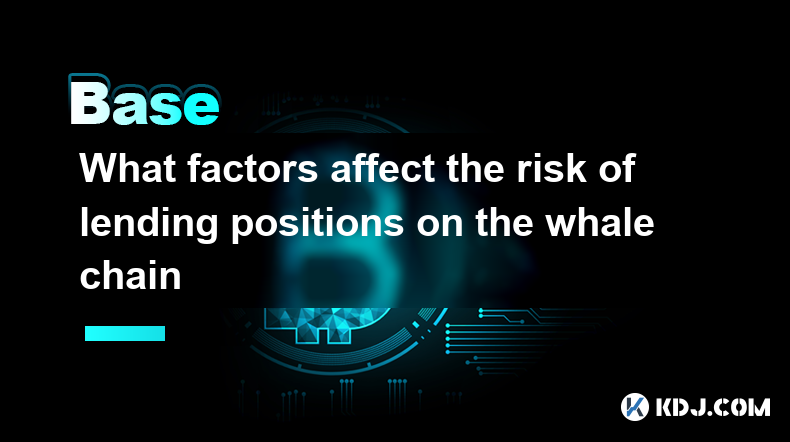
What factors affect the risk of lending positions on the whale chain
Apr 10,2025 at 12:35am
Here are some factors that will affect the risk of lending positions on the whale chain: 1. Market price fluctuations:The decline in collateral prices will cause the collateral value to shrink and may trigger liquidation. For example, a whale borrowed 75.69 million DAI with 60,810 ETH. When the price of ETH falls, its position health will drop sharply a...
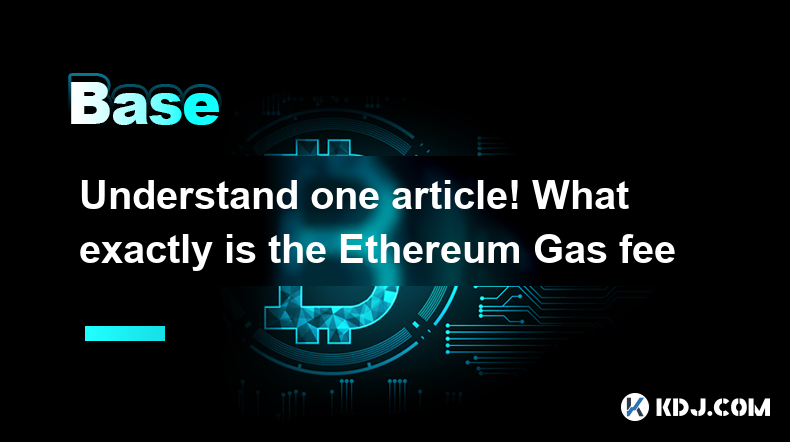
Understand one article! What exactly is the Ethereum Gas fee
Apr 10,2025 at 03:21am
The Ethereum Gas fee refers to the fees paid when trading or executing smart contracts on the Ethereum blockchain, which is used to compensate miners for the computing resources consumed by verifying and packaging exchanges. Here is a detailed introduction to it: Gas concept Gas can be regarded as the “fuel” in the Ethereum network. Ethereum is regarded...
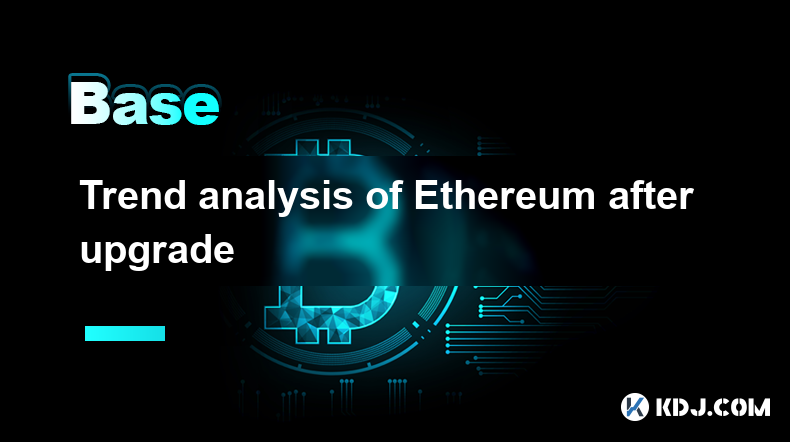
Trend analysis of Ethereum after upgrade
Apr 10,2025 at 04:01am
As a pioneer in blockchain technology, Ethereum has a profound impact on the entire digital asset field every upgrade. Accurately predicting upgraded market trends is crucial for investors and developers. This article will explore in-depth various trends that may appear after the upgrade of Ethereum, helping you grasp the pulse of the market and underst...
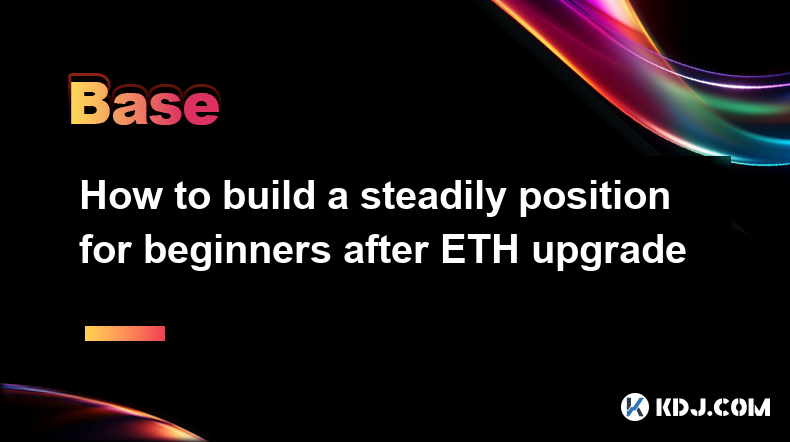
How to build a steadily position for beginners after ETH upgrade
Apr 10,2025 at 04:49pm
The upgrade of Ethereum (ETH) is a grand event in the digital asset field, providing an excellent opportunity for beginner investors. However, the market is volatile and direct investment may face higher risks. This article will provide novices with a stable guide to building positions, helping everyone move forward steadily after ETH upgrade, reduce ri...

Is there any handling fee for cryptocurrency exchange liquidation?
Apr 10,2025 at 04:29pm
When trading contracts on cryptocurrency exchanges, liquidation is a word that scares investors. A liquidation means that the investor has lost all its principal. So, will the exchange still charge a handling fee when the liquidation is liquidated? This is a concern for many investors. This article will give a detailed answer to this. Important statemen...

How to manage the risks of lending positions on the whale chain?
Apr 09,2025 at 10:50pm
To manage the risks of lending positions on the whale chain, we need to start from the following aspects: 1. Reasonable control of positions and leverage:Determine the appropriate lending scale and leverage multiple based on your own risk tolerance to avoid excessive leverage. For example, if whales do not have a particularly strong grasp of the market ...

What factors affect the risk of lending positions on the whale chain
Apr 10,2025 at 12:35am
Here are some factors that will affect the risk of lending positions on the whale chain: 1. Market price fluctuations:The decline in collateral prices will cause the collateral value to shrink and may trigger liquidation. For example, a whale borrowed 75.69 million DAI with 60,810 ETH. When the price of ETH falls, its position health will drop sharply a...

Understand one article! What exactly is the Ethereum Gas fee
Apr 10,2025 at 03:21am
The Ethereum Gas fee refers to the fees paid when trading or executing smart contracts on the Ethereum blockchain, which is used to compensate miners for the computing resources consumed by verifying and packaging exchanges. Here is a detailed introduction to it: Gas concept Gas can be regarded as the “fuel” in the Ethereum network. Ethereum is regarded...

Trend analysis of Ethereum after upgrade
Apr 10,2025 at 04:01am
As a pioneer in blockchain technology, Ethereum has a profound impact on the entire digital asset field every upgrade. Accurately predicting upgraded market trends is crucial for investors and developers. This article will explore in-depth various trends that may appear after the upgrade of Ethereum, helping you grasp the pulse of the market and underst...

How to build a steadily position for beginners after ETH upgrade
Apr 10,2025 at 04:49pm
The upgrade of Ethereum (ETH) is a grand event in the digital asset field, providing an excellent opportunity for beginner investors. However, the market is volatile and direct investment may face higher risks. This article will provide novices with a stable guide to building positions, helping everyone move forward steadily after ETH upgrade, reduce ri...
See all articles





















































































